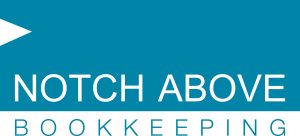Has COVID-19 changed bookkeeping as we know it?
Digital Disconnection
Not putting too strong a point on it, the crisis triggered by coronavirus is an undisputed economic and business disaster.
What happened to businesses that rallied to set up their workforces safely offsite? And when bookkeepers were part of that headcount, how effective did the bookkeeping function remain?
Or how ineffective did bookkeeping become?
Conventionally in small and medium businesses, bookkeeping software is typically installed on a dedicated computer drive, only accessible by a licensed user through a desktop application on a designated machine.
So how is COVID disconnection affecting business performance during a time when we’re all talking about business sustainability and, hopefully, business recovery?
Currently we can’t just leave paper receipts or invoices on your bookkeeper’s desk to process.
Similarly, with that reliance on paper trails, some of us can no longer chase payments accurately, because who knows with any certainty who has paid, or not.
Fortunately, business technology was actively evolving before all this happened to a point that cloud accounting software had solutions for many of these accessibility issues. Bookkeeping software has, in most instances, also been moved to the cloud, and what a relief for those cloud users during these unprecedented times.
Playing catch up
The global spread of COVID-19 contributed enormously to the panicked surge of businesses moving over to cloud-based bookkeeping software. It’s an industry that had been seeing robust growth anyway, but the need to change in order to continue functioning finally pushed many stalwart business owners off the fence of indecision.
But what are the differences between cloud and traditional accounting software? As we see it, there are three:
- Accessibility
- Business scalability and growth, and
- Affordability
Accessing bookkeeping during lockdown
Cloud-based software essentially means that your bookkeeping data is stored on a remote server, and accessed through a highly secure online interface, anywhere with an internet connection. Unlike traditional accounting software, users are not restricted to a single machine from which to access what they need, so access doesn’t stop when the office closes.
It means that financial information is no longer stored locally and, instead, provides multiple authorised users with 24-7 access to real-time data. Managers, accountants, clients and bookkeepers can all be in different locations and time zones and yet continue to monitor and control a business’ financial position.
Growing bookkeeping with the business
Growing a business can be an expensive exercise for business owners who rely on traditional accounting software. Hiring an additional bookkeeper? Better purchase additional computer storage, upgrade the local server, and increase bandwidth access to it as well. If you don’t, things can slow down and suddenly two bookkeepers are working at the rate of one.
The impact of COVID-19 on bookkeeping practices has forcefully demonstrated the sheer versatile scalability of cloud accounting. It’s up to each software provider to manage server space, speed and performance which, usually for the cost of a monthly subscription, is much more financially flexible.
And that brings us to cost
Fewer local servers mean less office area is required to house them. That’s certainly one way to reduce the expenses that come with a larger property footprint.
Most cloud accounting software providers offer access on the basis of a monthly or annual subscription fee, usually including all the server storage you could need.
The software is online and updates itself at the source. No more paying for IT Support to come in and install updates on everyone’s individual machines.
At times like these, businesses either flourish or are incapacitated, whether that’s long or short term, who knows? Monthly subscriptions offer flexibility to businesses that need to respond to COVID-19 by standing down employees onto JobKeeper and then reinstate them on a rapid turnaround.
Notch Above Bookkeeping can help your business during COVID-19. We can review your existing bookkeeping system and then help you install updated software, configure your security settings, import your business data (chart of accounts/suppliers/debtors/employees) as well as setup your invoicing, payroll and taxation requirements so that your team can access financial data and operate remotely.



